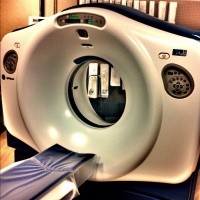Some Emergency Departments See Drop in Heroin Overdoses
Monitoring overdose fatalities is difficult as a result of time lags in reporting...
Emergency Personnel: Unintentional Occupational Exposure to Opioids
Cancer Patients May Receive Better Emergency Care at Hospital Where They Receive Cancer Treatments
Children Swallow Jewelry, Coins, Toys and Button Batteries, Leading to 99 ER Visits a Day
Is Immediate Cardioversion Necessary in New Onset Atrial Fibrillation?
Recent-onset symptomatic atrial fibrillation usually terminates spontaneously and therefore an acute cardioversion is not always necessary, as a wait-and-see approach...
Growth in Rural Emergency Department Visits Outpace Urban Increases
Combat Deaths Decreased as Military Improved Trauma Care in Afghanistan and Iraq
Hospital-Based Violence Prevention Programs Need to Engage More ER Patients
Use of IV Fluids by EMTs Reduced Morality in Septic Patients With Low Blood Pressure
MedicalResearch.com Interview with: Daniel J. Lane PhD
Daniel J. Lane PhD
Institute of Health Policy, Management and Evaluation
Dalla Lana School of Public Health, University of Toronto
Rescu, Li Ka Shing Knowledge Institute, St Michael’s Hospital
Toronto, Ontario, Canada
MedicalResearch.com: What is the background for this study? What are the main findings?
Response: Early resuscitation and early antibiotics have become the mainstay treatment for patients with sepsis. The time to initiation of these treatments is thought to be an important factor in patients surviving their disease; however, the independent benefits or harms of intravenous fluid resuscitation, in particular a more aggressive versus more conservative approach to this therapy, remains difficult to evaluate given the concurrent use of these therapies in hospital.
To gain a better understanding of this treatment independent of antibiotic use, we assessed intravenous fluid resuscitation by paramedics on the in-hospital mortality of patients with sepsis. By accounting for the interaction between initial systolic blood pressure and the treatment, we found that earlier resuscitation by paramedics was associated with decreased mortality in patients with low initial blood pressures but not associated with mortality for patients with normal or higher initial blood pressures.
Electronic Decision Support Facilitates Home Discharge of Some PE Patients From ER
Who is Really Sick? Eyeball Assessment vs Formal Triage
AI: Deep Learning Algorithms Can Detect Critical Head CT Findings
 Sasank Chilamkurthy
AI Scientist,
Qure.ai
MedicalResearch.com: What is the background for this study?
Response: Head CT scan is one of the most commonly used imaging protocols besides chest x-ray. They are used for patients with symptoms suggesting stroke, rise in intracranial pressure or head trauma. These manifest in findings like intracranial haemorrhage, midline shift or fracture.
Scans with these critical findings need to be read immediately. But radiologists evaluate the scans on first-come-first-serve basis or based on stat/routine markers set by clinicians. If the scans with critical findings are somehow pushed to the top of radiologists’ work list, it could substantially decrease time to diagnosis and therefore decrease mortality and morbidity associated with stroke/head trauma.
(more…)
Sasank Chilamkurthy
AI Scientist,
Qure.ai
MedicalResearch.com: What is the background for this study?
Response: Head CT scan is one of the most commonly used imaging protocols besides chest x-ray. They are used for patients with symptoms suggesting stroke, rise in intracranial pressure or head trauma. These manifest in findings like intracranial haemorrhage, midline shift or fracture.
Scans with these critical findings need to be read immediately. But radiologists evaluate the scans on first-come-first-serve basis or based on stat/routine markers set by clinicians. If the scans with critical findings are somehow pushed to the top of radiologists’ work list, it could substantially decrease time to diagnosis and therefore decrease mortality and morbidity associated with stroke/head trauma.
(more…)“Head CT Choice” Educates Parents of Children with Mild Head Injury
Some Pulmonary Embolism Patients Can Be Treated at Home
What Kinds of Errors Are Made in Emergency Rooms? Who is Most Vulnerable?
Ketamine vs Opioids for Acute Pain in the Emergency Department
How Quickly and Accurately Can Ischemic Stroke Be Diagnosed and Treated with tPA?
Over 2 Millions Pediatric ER Visits For Bike Accidents Annually
 Lara McKenzie, PhD
Principal investigator in the Center for Injury Research and Polic
Nationwide Children’s Hospital.
MedicalResearch.com: What is the background for this study? What are the main findings?
Response: Bicycling is a great way for families to get outside and be active together, but certain precautions need to be taken to keep everyone safer. This study looked at bicycle-related injuries among children age 5-17 years treated in hospital emergency departments in the United States from 2006 through 2015 and found that, despite a decrease in the rate of injuries over the 10-year study period, there were still more than 2.2 million injuries. This averages 608 cases per day or 25 every hour.
The majority of injuries involved children 10 to 14 years of age (46%) and boys (72%). The most commonly injured body region was the upper extremities (36%), followed by the lower extremities (25%), face (15%), and head and neck (15%). The most common types of injury were bruises and scrapes (29%) and cuts (23%). Overall, traumatic brain injuries (TBIs) represented 11% of total injuries and were most common among patients 10-14 years of age (44%). About 4% of patients were hospitalized.
Injuries most frequently occurred in the street (48%) or at home (37%). Helmet use at the time of injury was associated with a lower likelihood of head and neck injuries and hospitalizations, but there was no significant change in the rate of injury among helmet users over the study period. Motor vehicle involvement increased the odds of bicycle-related TBIs and injury-related hospitalizations. (more…)
Lara McKenzie, PhD
Principal investigator in the Center for Injury Research and Polic
Nationwide Children’s Hospital.
MedicalResearch.com: What is the background for this study? What are the main findings?
Response: Bicycling is a great way for families to get outside and be active together, but certain precautions need to be taken to keep everyone safer. This study looked at bicycle-related injuries among children age 5-17 years treated in hospital emergency departments in the United States from 2006 through 2015 and found that, despite a decrease in the rate of injuries over the 10-year study period, there were still more than 2.2 million injuries. This averages 608 cases per day or 25 every hour.
The majority of injuries involved children 10 to 14 years of age (46%) and boys (72%). The most commonly injured body region was the upper extremities (36%), followed by the lower extremities (25%), face (15%), and head and neck (15%). The most common types of injury were bruises and scrapes (29%) and cuts (23%). Overall, traumatic brain injuries (TBIs) represented 11% of total injuries and were most common among patients 10-14 years of age (44%). About 4% of patients were hospitalized.
Injuries most frequently occurred in the street (48%) or at home (37%). Helmet use at the time of injury was associated with a lower likelihood of head and neck injuries and hospitalizations, but there was no significant change in the rate of injury among helmet users over the study period. Motor vehicle involvement increased the odds of bicycle-related TBIs and injury-related hospitalizations. (more…)Stress Echocardiography vs Coronary CT To Evaluate Chest Pain in ER
Treatment Initiation for Opioid Use Disorder in Emergency Departments
airRx App Improves Physicians’ Ability To Manage In-Flight Emergencies
 Dr. Raymond E. Bertino, MD
airRx lead developer and
Clinical Professor of Radiology and Surgery at UICOMP
MedicalResearch.com: What is the background for the airRX app and study?
Response: With increasing air travel, in-flight medical emergencies have increased and physicians on commercial airline flights are routinely asked to volunteer assistance. A study presented this week at the annual meeting of The Society for Academic Emergency Medicine (SAEM) examined physician performance during practice simulations of in-flight medical emergencies with use of a smartphone app, airRx.
In the unique study, cases based on commonly occurring in-flight medical emergencies were portrayed in a mockup of the airline cabin setting. Actors portrayed patients, family members, seat neighbors and flight attendants. Resident physicians in non-emergency specialties were asked to assist as if they were volunteering in actual medical emergencies.
The study utilized airRx, the mobile app developed to help physicians and other medical personnel volunteering during in-flight medical events. The airRx app enables healthcare professionals to access 23 scenarios of the most common medical emergencies, with concise treatment algorithms and reference information to help evaluate and treat the patient. (more…)
Dr. Raymond E. Bertino, MD
airRx lead developer and
Clinical Professor of Radiology and Surgery at UICOMP
MedicalResearch.com: What is the background for the airRX app and study?
Response: With increasing air travel, in-flight medical emergencies have increased and physicians on commercial airline flights are routinely asked to volunteer assistance. A study presented this week at the annual meeting of The Society for Academic Emergency Medicine (SAEM) examined physician performance during practice simulations of in-flight medical emergencies with use of a smartphone app, airRx.
In the unique study, cases based on commonly occurring in-flight medical emergencies were portrayed in a mockup of the airline cabin setting. Actors portrayed patients, family members, seat neighbors and flight attendants. Resident physicians in non-emergency specialties were asked to assist as if they were volunteering in actual medical emergencies.
The study utilized airRx, the mobile app developed to help physicians and other medical personnel volunteering during in-flight medical events. The airRx app enables healthcare professionals to access 23 scenarios of the most common medical emergencies, with concise treatment algorithms and reference information to help evaluate and treat the patient. (more…)Women and Uninsured More Likely to Suffer from Migraines
One Blood Type Is a Risk For Bleeding Out After Trauma
Most Opioid Overdose Patients Can Be Discharged After Brief ER Visit
Urgent/Emergent TAVR Feasible But Mortality Higher Than When Performed Electively
Heart Attacks Rarely Misdiagnosed in Emergency Rooms
 Daniel A. Waxman, MD, PhD
Department of Emergency Medicine
David Geffen School of Medicine
University of California, Los Angeles
RAND Corporation Santa Monica, California
MedicalResearch.com: What is the background for this study? What are the main findings?
Response: When people talk about medical error, they are usually referring to treatment error—giving the wrong medication, operating on the wrong side of the body, etc. But many believe that diagnostic error—the failure to diagnose a condition when a patient seeks care—is at least as widespread and consequential a problem. However, diagnostic errors are intrinsically difficult to measure, since one can rarely prove that a condition was present at the time it was not diagnosed.
In this study, we introduce a novel method for measuring how often patients who come to the emergency room with symptoms of an imminent cardiovascular emergency such as acute myocardial infarction (heart attack) are discharged home without a diagnosis.
We find that among Medicare patients whose ER visits were attributable to symptoms of an imminent infarction, only about 2.3% were discharged home, and that the figure was under 5% for each of the other four conditions we studied. However, we also found that these relatively low rates did not improve between 2007 and 2014.
(more…)
Daniel A. Waxman, MD, PhD
Department of Emergency Medicine
David Geffen School of Medicine
University of California, Los Angeles
RAND Corporation Santa Monica, California
MedicalResearch.com: What is the background for this study? What are the main findings?
Response: When people talk about medical error, they are usually referring to treatment error—giving the wrong medication, operating on the wrong side of the body, etc. But many believe that diagnostic error—the failure to diagnose a condition when a patient seeks care—is at least as widespread and consequential a problem. However, diagnostic errors are intrinsically difficult to measure, since one can rarely prove that a condition was present at the time it was not diagnosed.
In this study, we introduce a novel method for measuring how often patients who come to the emergency room with symptoms of an imminent cardiovascular emergency such as acute myocardial infarction (heart attack) are discharged home without a diagnosis.
We find that among Medicare patients whose ER visits were attributable to symptoms of an imminent infarction, only about 2.3% were discharged home, and that the figure was under 5% for each of the other four conditions we studied. However, we also found that these relatively low rates did not improve between 2007 and 2014.
(more…)

















